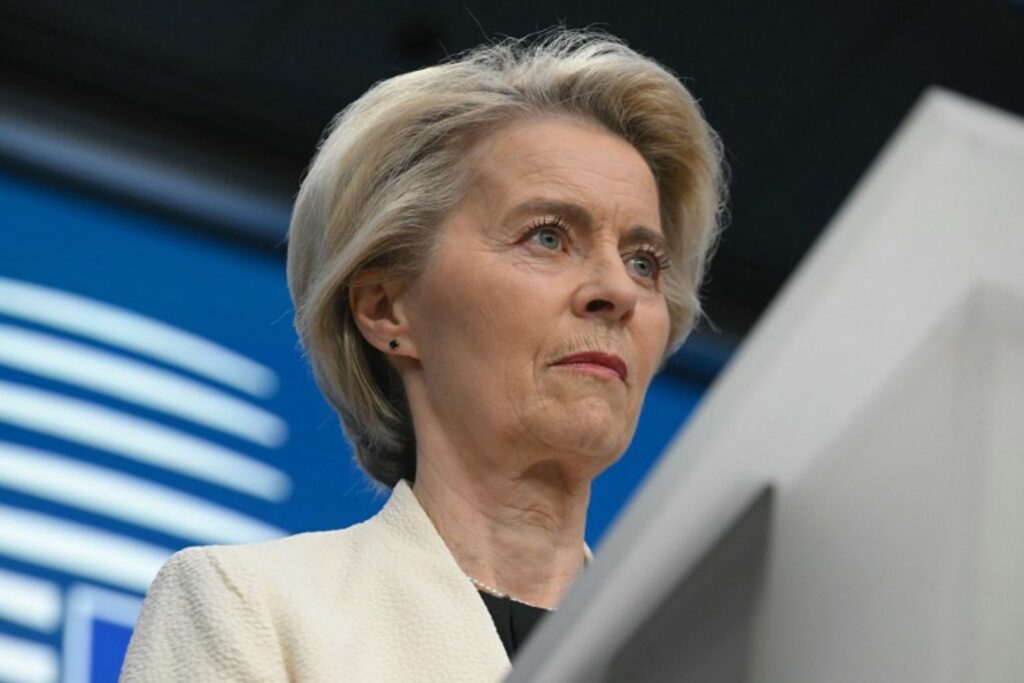European Commission President Ursula von der Leyen announced some key details on European security and ReArm Europe programme during her press conference on Sunday marking the first 100 days since the 2024-2029 Commission took office - "100 days since 1 December that feel like a lifetime ago".
In the beginning of her press remarks, von der Leyen highlighted the building of new partnerships and the strengthening of old ones, “with countries and regions, big and small”
We forged landmark agreements –– with Switzerland, Mexico and Mercosur. With Mercosur we achieved a major breakthrough after two decades of negotiations and created a market of 700 million consumers while protecting vulnerable sectors.”
“And in India, the world's largest democracy, which I visited with the College of Commissioners last week, we deepened cooperation on trade, technology and innovation,” she said.
But the focus in her remarks was on Europe's defence. Efforts in European defence could give a “massive boost” to a more competitive single market, she stated.
The upcoming investments in next-generation military equipment and Europe’s security infrastructure can trigger a powerful ripple effect for major industries, according to von der Leyen. Her ambitious €800 billion plan, “ReArm Europe,” received initial approval on Thursday at the European summit in Brussels.
She highlighted potential advancements in digitalisation, modernisation of transport networks, AI applications, quantum computing, secure communications, satellite networks, autonomous vehicles, and robotics.
“SMEs in our Union – we have 2,500 in the defence supply chain – will be at the heart of this transformation,” she affirmed during a press briefing marking the 100 days of her second term.
The European executive’s head also announced a new format for her commissioners to meet, which will be a “security college” to be established in the coming weeks.
“Security college members will be regularly briefed on security developments, from external and internal security to energy, defence, research, cybernetics, trade, and foreign interference. Only with a clear and thorough understanding of threats, including hybrid threats, can we effectively contribute to collective security.”
Alongside the need for a “colossal economic transformation,” von der Leyen reaffirmed the 2030 and 2050 decarbonisation goals, as set out in the Clean Industry Pact. “We must continually adapt while maintaining these objectives,” she said.
The first 100 days of the von der Leyen II Commission have been marked by the destabilising return of Donald Trump to the US presidency, threatening allies with tariffs and hinting at a disengagement from Ukraine that could benefit Moscow.
“Geopolitical upheavals are shaking alliances, old certainties are collapsing,” von der Leyen said. “We have clearly entered a new era of fierce geostrategic competition. We see some retreating inward, sowing uncertainty and seeking short-term gains. I want to be clear that Europe will remain open, synonymous with partnership and openness. We offer stability and predictability, valuable traits in these challenging times.”
When asked if the US is still an ally of the EU, von der Leyen responded affirmatively. “We may have different views, but our shared interests are more significant than what divides us,” she said, notably referring to NATO. She emphasised that “everyone needs to do their part,” as “being allies does not mean an imbalance in burden-sharing.”
Von der Leyen dismissed the idea of applying a “de-risking” strategy to the US, similar to the EU’s approach with China. “The relationship is very different,” she stated.
The defence investments under “ReArm Europe” will be labelled as European but will involve a “gradual increase,” as currently, 80% of European defence investments go outside the EU, she noted. She added the importance of maintaining close ties with the British and Norwegian industries (such as submarines).
At the end of her press remarks, the Commission President also announced that on Tuesday – day 100 of this College – the Commission will adopt an "ambitious" legal proposal on returns. "Returns are a key element of the Pact on Migration and Asylum. We will propose common rules for returns – with a new European Return Order and mutual recognition of return decisions by Member States."
The Commission is set to present its white paper on the future of European defence on 19 March, ahead of another European summit where “ReArm Europe” will be discussed again.

